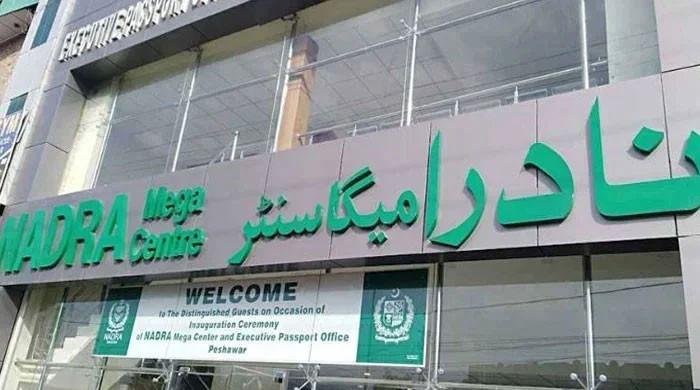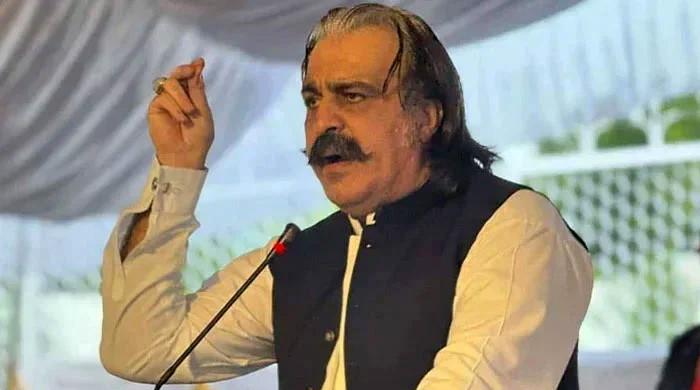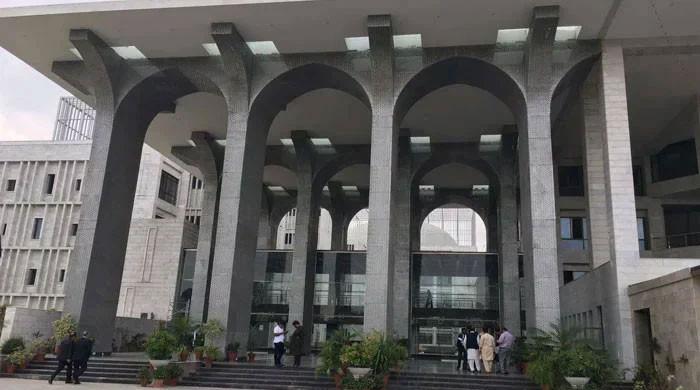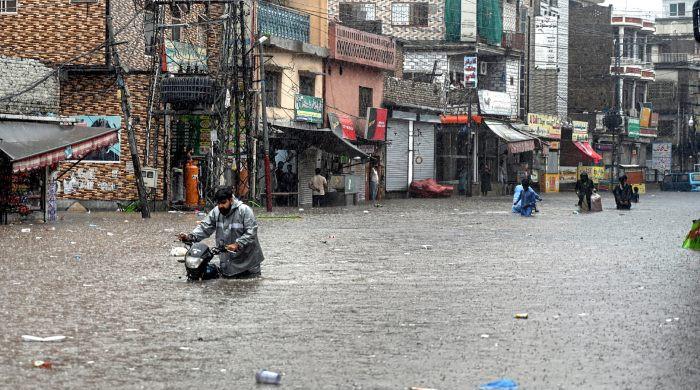DPM Dar urges debt relief, grant-based support for developing nations at UN forum
Pakistan aims for 60% renewable energy share by 2030, says Deputy Prime Minister Dar
July 21, 2025
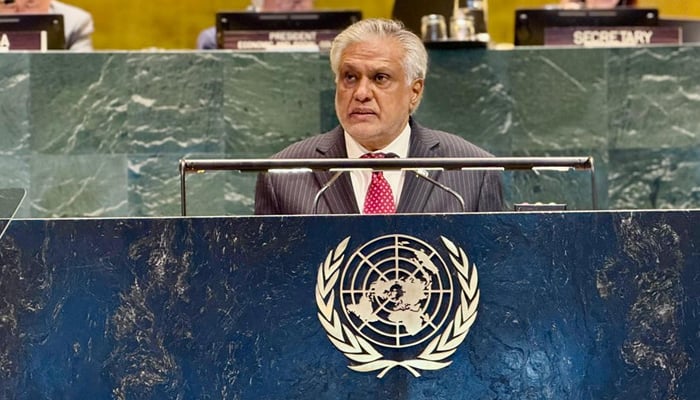
- Food crisis, climate change are top global challenges.
- BISP supports middle class with direct assistance.
- Digital Youth Hub boosts youth empowerment efforts.
NEW YORK: Deputy Prime Minister and Foreign Minister Ishaq Dar has said that developing countries require debt relief and access to grant-based resources to achieve sustainable development.
Dar was addressing the high-level political forum on sustainable development at the United Nations.
He said that Pakistan is firmly committed to the 2030 Agenda and has undertaken transformative initiatives to drive inclusive growth, strengthen climate resilience, and implement economic reforms.
The deputy prime minister identified the global food crisis and climate change as two of the biggest challenges facing the world today.
He said the Uraan Pakistan programme is a major initiative for national development, while Danish schools are being set up for underprivileged children, including those verified through NADRA.
He added that Pakistan is also supporting the middle class through the Benazir Income Support Programme (BISP), ensuring no one is left behind.
Dar further noted that the country aims to derive 60% of its energy from renewable sources by 2030. Programmes like Recharge Pakistan and Living Indus are helping boost climate resilience. Youth empowerment is being advanced through the Digital Youth Hub and Danish School networks.
He said macroeconomic reforms are helping stabilise the economy and make Pakistan attractive for investment. Dar highlighted the role of the Special Investment Facilitation Council (SIFC) in attracting foreign investment in priority sectors.
Stressing the need for global financial reforms, Dar said fundamental changes in the international financial system are essential to achieve the Sustainable Development Goals (SDGs).
He added that the UN’s 80th anniversary is an opportunity to make the organisation stronger and more responsive to today’s challenges.
DPM discusses Gaza with UNSG
Later, Deputy Prime Minister Dar met the UN Secretary General, Antonio Guterres, at the United Nations Headquaters.
During the meeting, the DPM reaffirmed Pakistan’s unwavering and resolute commitment to multilateralism and the central role of the UN in addressing the most pressing global challenges.
The DPM reassured the UNSG of Pakistan’s focus on strengthening the UN’s role in conflict resolution, in promoting sustainable development, and in upholding the fundamental rights of all peoples around the world.
Guterres appreciated Pakistan’s presence and initiatives at the UNSC.
The DPM underscored that Pakistan is fully committed to the purposes and principles of the UN Charter, especially the need to advance peace through dialogue and diplomacy.
He further stated that the high-level debate on multilateralism and peaceful settlement of disputes and the meeting on UN-OIC cooperation, under Pakistan’s Presidency of the UN Security Council for the current month, reflects on Pakistan’s commitment to multilateralism and the promotion of peace.
The deputy prime minister emphasised issues of critical national and regional importance to Pakistan, particularly the Jammu and Kashmir dispute, violation of the Indus Waters Treaty (IWT) and externally sponsored terrorism in Pakistan.
He stressed the imperative of a just settlement of the Jammu and Kashmir dispute in accordance with the resolutions of the Security Council. The DPM lauded the secretary-general’s leadership and sincere efforts for de-escalation of recent tensions between Pakistan and India.
The DPM reiterated Pakistan’s unwavering support for Palestinian statehood, an immediate ceasefire in Gaza, and firm opposition to Israel’s annexation plans in the West Bank.
The DPM and the UNSG also exchanged views on the need for promoting concessional financing to support development and climate goals, espcially for the developing countries, mobilsing enhanced international support for debt relief and liquidity solutions for the Global South.
The DPM emphasised that the Secretary-General’s “UN80” initiative offered a critical opportunity to strengthen the three pillars of the United Nations to promote international peace and security, sustainable development and human rights worldwide.
The DPM welcomed the appointment of a UN Special Envoy on Islamophobia and expressed readiness to support global efforts to combat religious intolerance.





